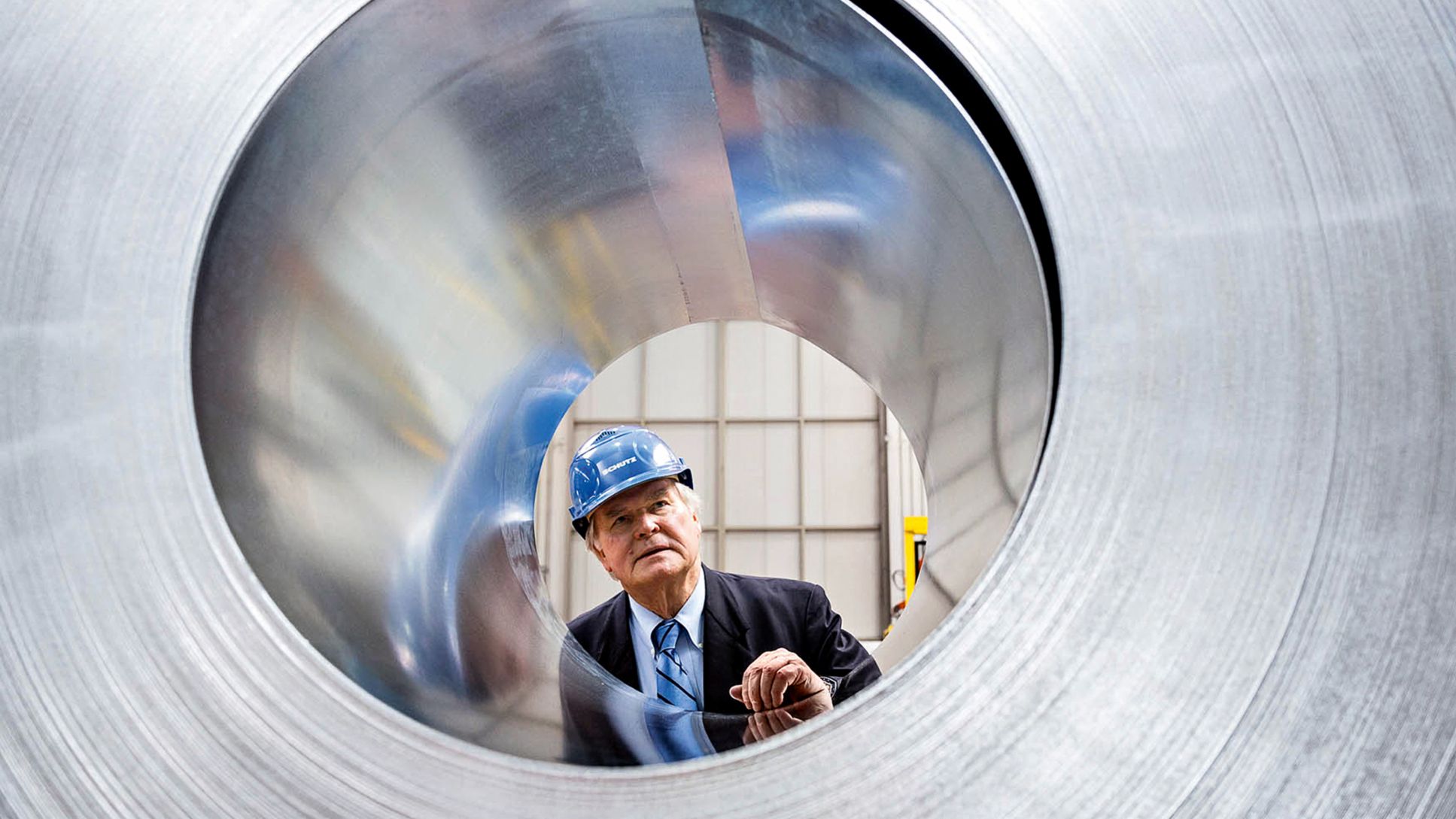Udo Schütz had a clear as well as unusual motive when he went into business for himself in 1958 at the age of 21. “I absolutely wanted to be a racing driver and needed money to pay for the car and equipment,” he recalls. A business student who had also completed an apprenticeship at a hardware store, he got the idea for his enterprise while reading a market study on the strongly rising demand for heating oil tanks. The Schütz Group has made a name for itself above all as the leading international producer of IBC s (intermediate bulk containers). These pallet-mounted containers can hold up to 1,250 liters of liquid and have become popular worldwide as the means of transport for products such as paints and chemicals.
The Schütz Group makes nearly 400 different types of IBC s (intermediate bulk containers) in Selters. These containers differ not only in their fittings for filling and emptying. Depending on their application, they are made of different materials, up to six per container. Food flavorings and Coca-Cola extracts have to be transported in certified synthetic materials. Special heavy-duty materials are needed for chemicals, and containers that carry solvents need to have integrated barriers.
Porsche Consulting applied the “just-in-time” approach
The highly complex machines that do the production work are developed and built by the company itself. As Udo Schütz explains, “We can do this better than the other manufacturers in the field, and we also build more large-scale systems than they do.” But Schütz needed support to optimize the company’s production processes—and knew where to get it. “Car makers are experts in contractbased production with a large range of variety. We wanted to learn from them.” His factory in Selters should become a Zuffenhausen in miniature.
So a team from Porsche Consulting analyzed the processes and applied the “just-in-time” approach from car making to IBC production. Porsche Consulting Principal Stephan Lechel describes the results: “The central assembly line now runs on an order basis and a takt principle. We also synchronized and optimized upstream processes such as preparation of blow molding machines, reforming, and welding to the grid structure. A lean logistics concept based on the Porsche Leipzig benchmark was developed to integrate the auxiliary processes. This enabled output on the line to be increased by more than one-third.”
The Schütz management is satisfied with these results—so much so that they now want to roll out the new production concept worldwide. As Lechel observes, “For us the project is nearly over, but for Schütz it will keep going, and that’s what we planned from the start. We’re currently training a team at Schütz that will transfer the new production method at headquarters to all of the other production sites.”
Info
Text first published in „Porsche Consulting - THE MAGAZINE", Issue 15
Author: Gerals Scheffels




